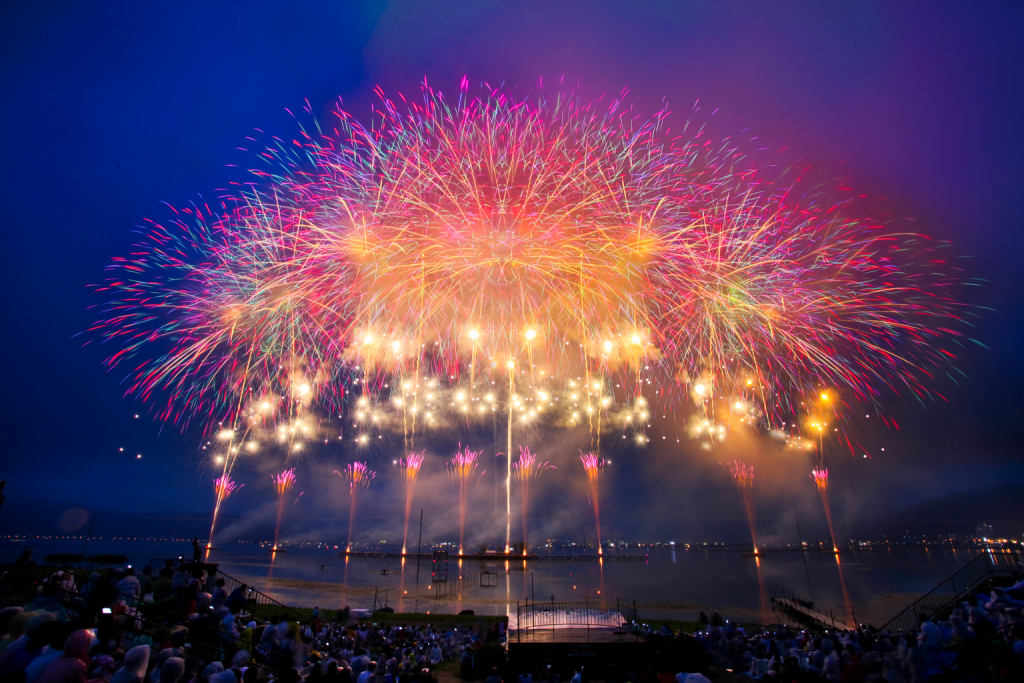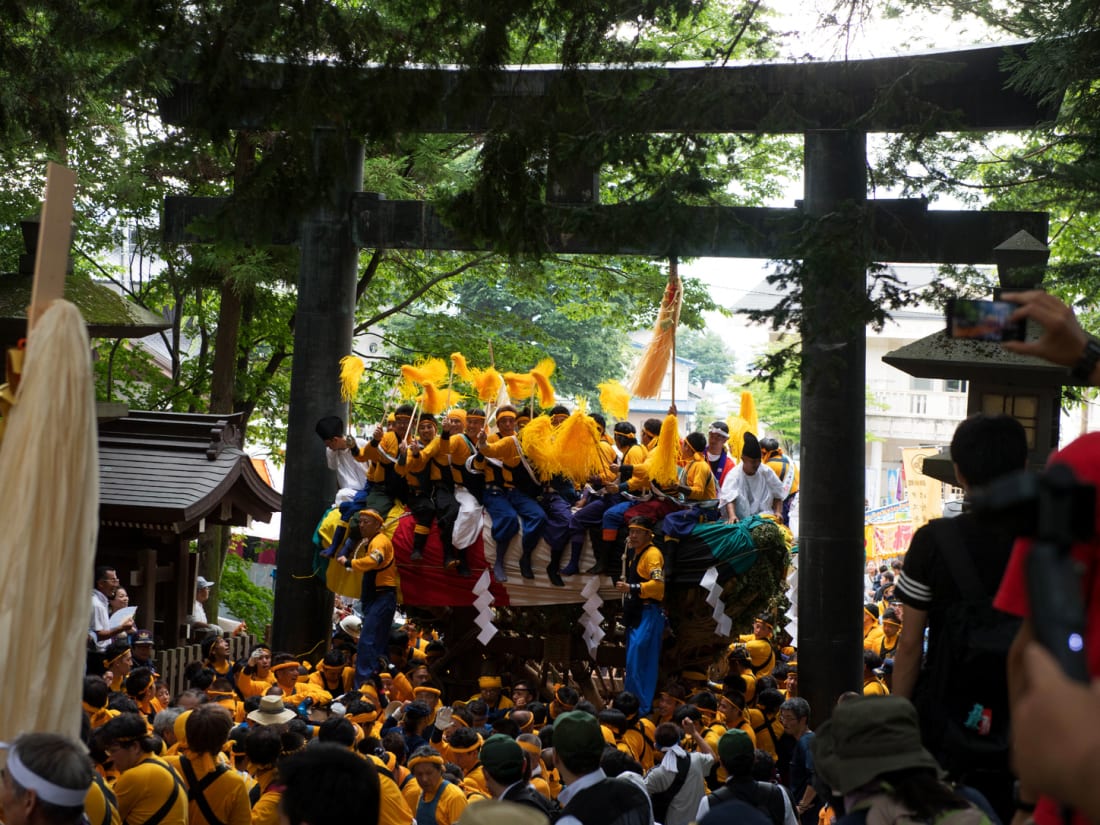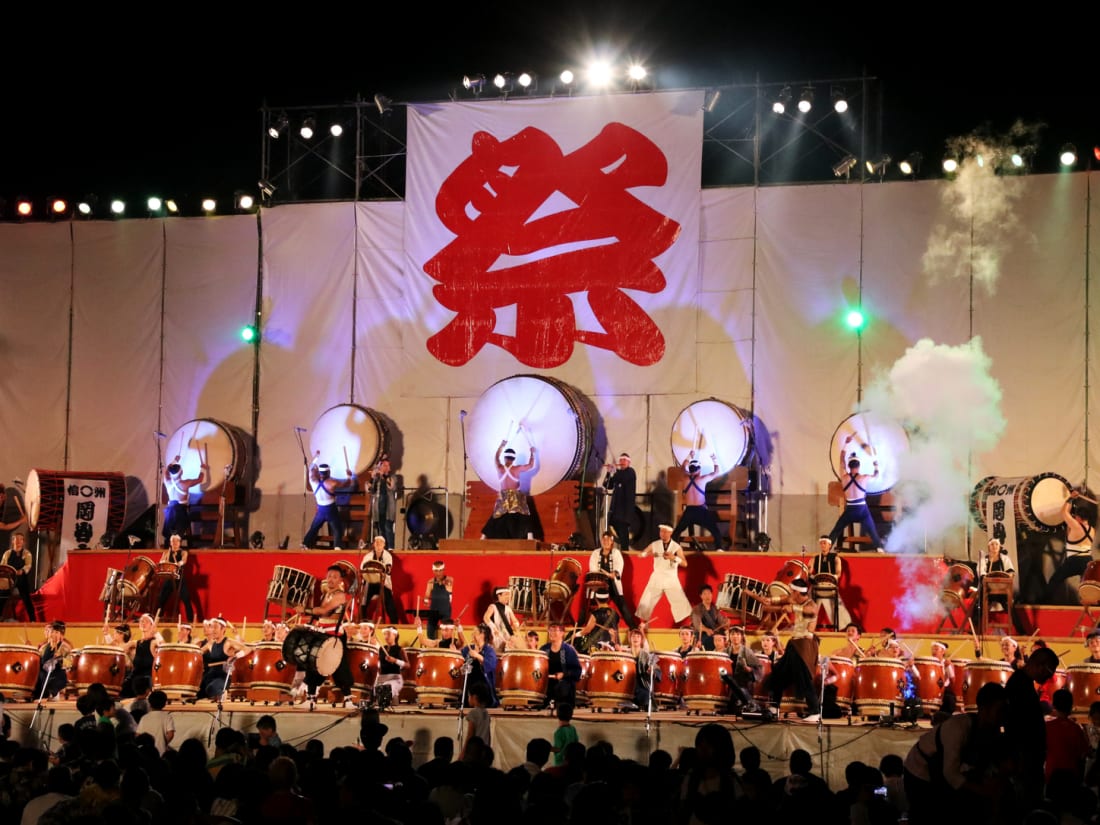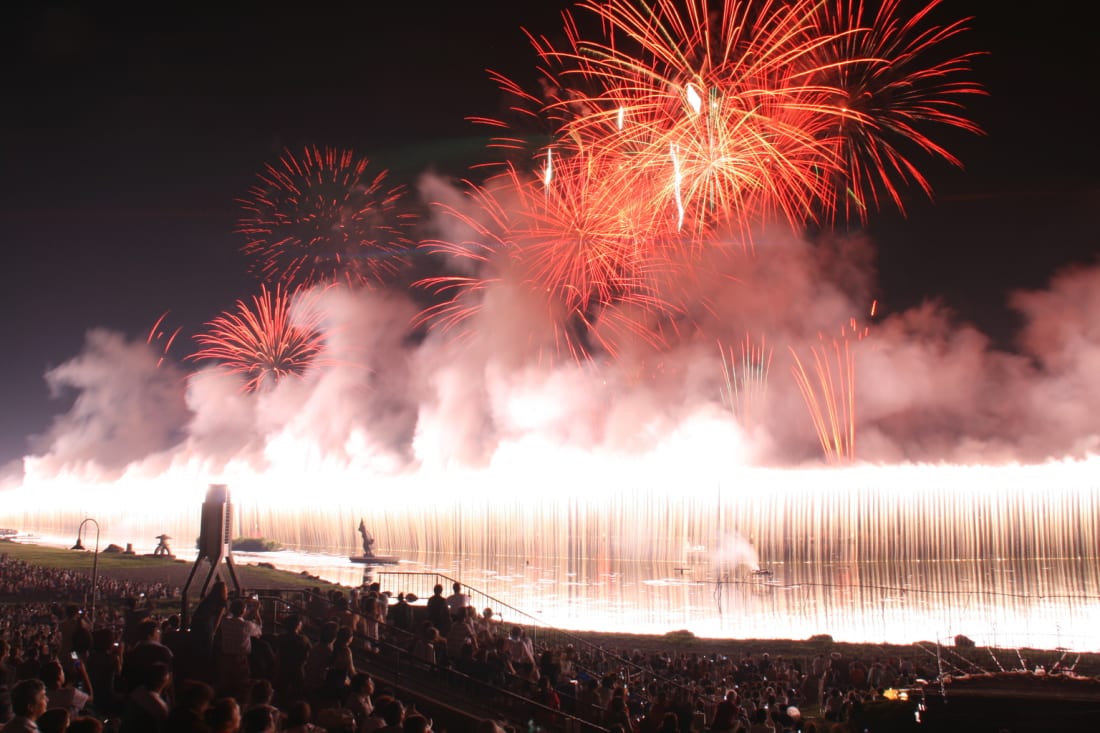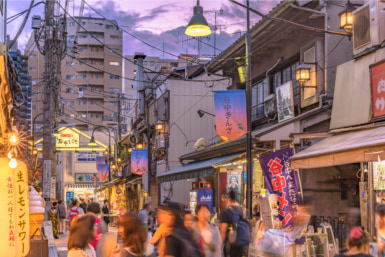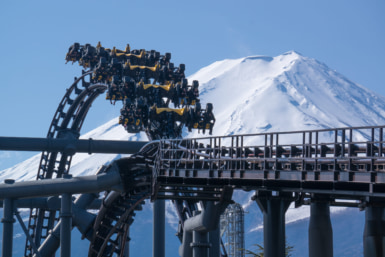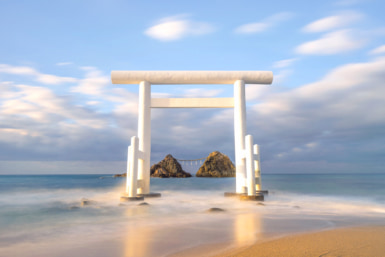For centuries Tokyoites have escaped the scorching summer heat by heading for the hills of Nagano. The prefecture’s lake resort town of Suwa will be hopping with festivities in the coming months. From traditional matsuri to dazzling fireworks spectacles, see what all the buzz is about in Suwa this summer.
About two and a half hours from Tokyo by train, the city in the heart of the Japanese Alps sets on the shore of Lake Suwa, Nagano Prefecture’s largest lake. Surrounded by forest and mountains and abundant with hot springs, Suwa is a natural retreat that offers relaxation as well as adventurous outdoor activities.
All Aboard
It is essential to plan any trips to Suwa around the one-of-a-kind summer festivals. The boat festival, called Ofune Matsuri, ironically does not take place on water. The boat festival is a tradition that is said to have originated more than 2,000 years ago during the Yayoi Period.
Suwa Grand Shrine is considered one of the oldest shrines in Japan, with historic records recognizing its existence as early as the 7th century. The complex consists of approximately 60 shrines scattered throughout the Lake Suwa area, including four main shrines located on opposite sides of the lake.
Representing the Lower Shrine, located on the northern side of the lake in the city of Shimosuwa, are Harumiya (the spring shrine) and Akimiya (the autumn shrine), home to an 800-year-old cedar tree. The boat festival takes place at these two shrines, with the festivities kicking off every year on July 31 with traditional dance performances and an astounding fireworks display.
The local god is housed in Harumiya from February until the end of July, and on the 31st the god is enshrined inside a giant boat handcrafted from local timber. On August 1, the boat is then carried by hundreds of revelers to Akimiya Shrine, where the god will be housed for the next six months.
Drum Line
From August 13–14 of every year, Japan’s best taiko drum performers descend upon the small nearby city of Okaya for the Okaya Taiko Festival. Located on the northwest shore of Lake Suwa, the whole town of Okaya reverberates with the thumping drum beats for the duration of the celebration held during Obon week.
The taiko drum was used by samurai to call the people to war. Today it is used for entertainment and as this festival hosts some of Japan’s best performers, the shows are amazing. Up to 300 performers can populate the main stage at the same time while a drummer beats the giant taiko drum planted at the center of the stage. Occasional flares of fire or puffs of smoke erupt throughout the performance area, creating a dramatic effect.
Smaller performances take place on a second stage where local groups display their unique brand of taiko. Meanwhile, traditional dance performances can be seen throughout the festival grounds while plenty of food stalls offer local delicacies and festival favorites.
Starry Nights
Suwa’s fireworks displays have become must-see affairs. Every night starting from the last weekend in July until the last weekend of August (this year from July 21–August 25) the night sky over Lake Suwa will be filled with illuminations during the Summer Night Fireworks Festival. The nightly displays last for an abrupt 10-minutes so don’t miss it. There are still other special fireworks festivals that dish up something more.
The introductory show, Umi no Hi (this year July 15) is a 30-minute display. However, a two-hour, awe-inspiring spectacle will be held on August 15, which many people consider to the best show in Japan.
The second main show is held on the first Saturday of September (this year September 7) and it lasts 90 minutes. During this final summer festival, Japan’s top pyrotechnicians show off new types of fireworks for the first time. During the grand finale, a string of fireworks called the dragon fans out across the lake while a barrage of rockets light up the starry sky.
Access: Suwa is accessible by the Chuo Line that runs between Shinjuku and Matsumoto stations (approximately 2hrs 30min). Express trains (Azusa) stop at Kamisuwa Station (site of the fireworks festival), Shimosuwa Station (site of the Boat Festival) and Okaya (site of the Taiko Festival) By car, Suwa is along the Chuo Line Expressway. Buses that run hourly from Shinjuku (about 3hrs). The bus stops at all the festival sites.

